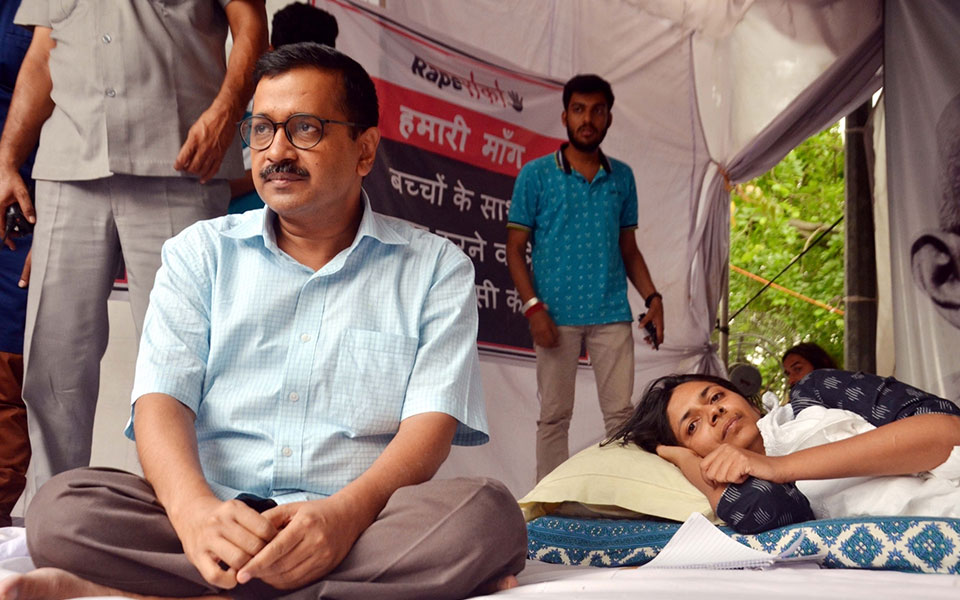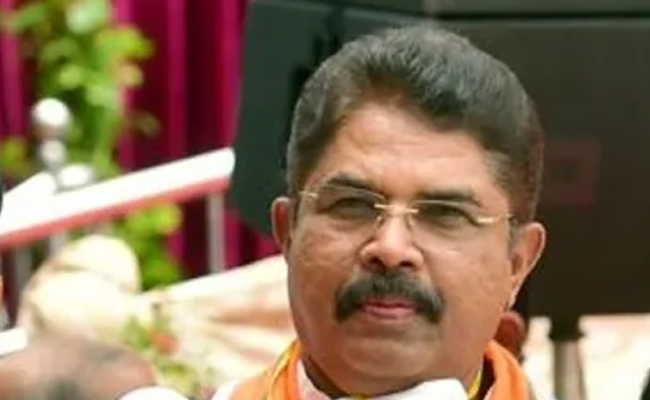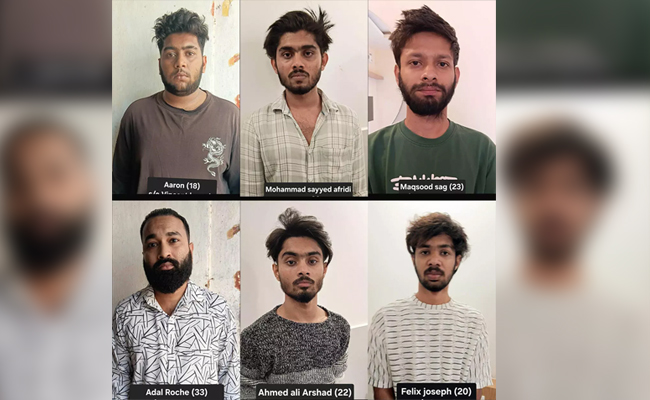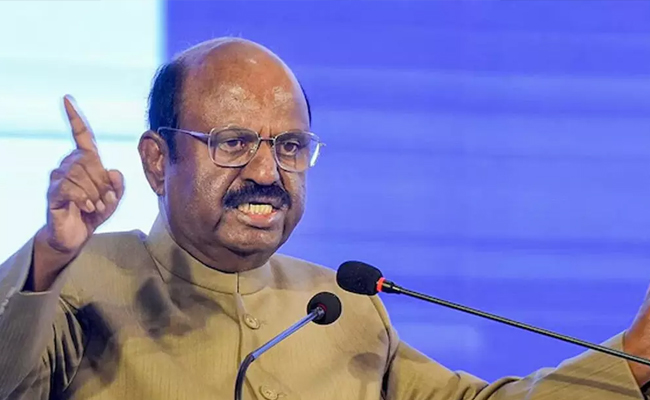New Delhi, June 13: After a hiatus of three years, Delhi Chief Minister Arvind Kejriwal is back in 'dharna' mode with two sit-ins in the last 30 days.
With the latest protest in the office room of Lt Governor Anil Baijal's residence, the rift between the IAS officials and the Aam Aadmi Party government, which started in February this year after an alleged assault on Chief Secretary Anshu Prakash, has flared up again.
The activist-turned-politician launched his party in 2012 and became the Chief Minister of Delhi in December next year with the support of the Congress as his party won 28 seats in the Assembly elections.
Soon after becoming the Chief Minister, he along with his cabinet launched a protest in January 2014 when Kejriwal protested on the road outside the Rail Bhawan close to Parliament House, over the issue of control over Delhi Police, which is with the Centre.
After staying in power for 49 days, he resigned and proposed fresh elections as he failed in introducing the Delhi Jan Lokpal Bill due to lack of majority in the Assembly.
In 2015, when Assembly elections were held in Delhi, the AAP won a massive majority securing 67 of the total 70 seats.
After that, as Chief Minister Kejriwal never protested over anything until last month when he along with all his MLAs sat on a 'dharna' on the road near the Lt Governor's office urging him "not to stall" the CCTV project under "pressure from the BJP".
Kejriwal and the MLAs went to meet the Lt Governor on May 14. But when the police did not allow them to enter, they squatted on the road. They protested for around three hours sitting on the road and chanting slogans against the LG and the BJP.
The protest was called off with the party deciding that it will reach out to the people to tell them that the "BJP and the LG are disrupting the installation of CCTV cameras in the city".
The latest round of dramatic protest began at the LG's house by Kejriwal with Deputy Chief Minister Manish Sisodia and cabinet ministers Satyendar Jain and Gopal Rai in the Raj Niwas, the official accommodation-cum-office of Lt. Governor Anil Baijal, since Monday evening. Sisodia and Jain have now launched an indefinite hunger strike.
The reason for the novel protest is the face-off between IAS officials and the AAP government after the alleged assault on the Chief Secretary.
On February 20, the Chief Secretary alleged that he was assaulted by two Aam Aadmi Party MLAs Amanatullah Khan and Prakash Jarwal in the presence of Kejriwal at the Chief Minister's residence.
Following this, IAS officers in Delhi were not attending routine meetings called by the Ministers and the Chief Minister as "they (the Ministers) have failed to give any assurance till date regarding safety, security, dignity and respect to the officers including women officers," IAS Association secretary Manisha Saxena had said.
The four went to the LG's office on Monday at 5.30 p.m. to press their three demands, including a direction to IAS officers to end their "strike" and to take action against officers who have struck work for "four months".
The Chief Minister also demanded approval to his government's proposal to deliver rations to the poor at their homes.
Kejriwal said he and his colleagues would not leave Baijal's office until their demands were met. As of now, there seems to be no end to the protest with Bailjal not responding to their sit in.
Let the Truth be known. If you read VB and like VB, please be a VB Supporter and Help us deliver the Truth to one and all.
Bengaluru (PTI): Leader of Opposition in the Karnataka Assembly R Ashoka on Thursday took a dig at CM Siddaramaiah ahead of the state Budget presentation, claiming that the government is expected to borrow Rs 1.15 lakh crore and is likely to impose fresh taxes on the people.
He said the Budget would have nothing new, adding that its highlights would be criticism of Prime Minister Narendra Modi and repeated mentions of the five guarantee schemes ('Shakti', 'Gruha Lakshmi', 'Gruha Jyoti, 'Yuva Nidhi' and 'Anna Bhagya').
Chief Minister Siddaramaiah, who also holds the Finance portfolio, is scheduled to present the 2026–27 Budget on March 6. This will be his record 17th budget.
“Siddaramaiah-led Congress government’s budget will be presented tomorrow. While Finance Minister Nirmala Sitharaman reduced the tax burden in the Union Budget, Siddaramaiah is known for imposing taxes on people. He imposes about four taxes a month and has already introduced 36 taxes, and is now looking for ways to impose more,” Ashoka said.
Speaking to reporters, he said the Congress had promised people before coming to power that the guarantee schemes would be implemented without imposing any burden on them.
“By the end of the chief minister’s term, the state’s total debt will probably exceed Rs 6 lakh crore. The government has already breached financial discipline. Siddaramaiah and his government are somehow managing the situation,” Ashoka claimed, adding that his borrowings as CM equal those of 12 or 13 former chief ministers combined.
Stating that the Budget should create higher revenue sources, ensure that no burden is placed on people, and take the state away from debt, the opposition leader said this could be ensured only by a “clever and intelligent finance minister.”
“Anyone can run a government by pushing the state into debt,” he said, accusing Siddaramaiah of “increasing the state’s debt and failing to meet the expectations of the people.”
Highlighting that Siddaramaiah blames the previous BJP government for everything, Ashoka said Basavaraj Bommai, the chief minister during the previous BJP government, had presented a “surplus budget,” without excessive borrowings.
“Despite having the opportunity to borrow more while staying within the parameters of financial discipline, he (Bommai) did not do so, as it would burden the people,” he said, accusing Siddaramaiah of borrowing crores of rupees every year.
“I feel that this time too, he will take a loan of Rs 1.15 lakh crore,” he claimed.
The BJP leader said he had written to the CM requesting an allocation of Rs 15,000 crore annually for the development of backward taluks, as recommended by the High Power Committee on Redressal of Regional Imbalance (HPCRRI), chaired by economist Prof M Govinda Rao.
Claiming that the government appears “inactive” due to internal rifts, Ashoka pointed to an ongoing power struggle between factions led by Siddaramaiah and Deputy Chief Minister D K Shivakumar over the CM’s post.
“Amid all this, we cannot expect anything new from this Budget. The CM will repeatedly speak about the guarantee schemes and target the central government and PM Modi. Criticising Modi and repeated mentions of the five guarantee schemes will be the highlight of this Budget. Other than that, there will be nothing new,” he added.
He also dismissed the CM's claim that the government had achieved 90 per cent of the promises made in the previous Budget. “The fact is that not even 9 per cent has been achieved. I have evidence for it,” he said.
Ashoka further alleged that the government had also failed in tax collection, achieving only 48 per cent of the target, and had released less than 40 per cent of the allocated funds to some departments.





